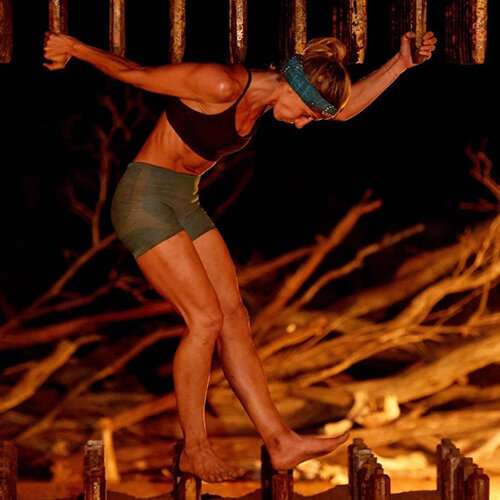Can we unlearn pain? Helping make sense of chronic pain

Outwit, outplay, outlast. Just like the motto on television show Survivor, a three-pronged approach to learning about pain could improve the lives of people experiencing chronic pain, according to new research from the University of South Australia.
Conducted by UniSA Ph.D. candidate and 2021 Australian Survivor champion, Hayley Leake, the research shows that adults who recover from chronic pain value learning three pain concepts:
- Pain does not mean that my body is damaged
- Thoughts, emotions, and experiences affect pain
- I can retrain my overprotective pain system.
Leake says these concepts reflect a modern application of the biopsychosocial model, which is central to delivering effective interventions to help people with chronic pain.
"Chronic pain is experienced by one in five Australians, and when pain persists, it can disrupt every aspect of life—including school or work, social and family connections, and physical and mental health," Leake says.
"Modern pain science suggests that pain is a protective output from the brain in response to threat. Threat may take many forms, not just what's happening in your body, but also your thoughts, emotions and context.
"In the final challenge on Survivor, I stood on narrow pegs for almost five and a half hours. To manage that pain, I tried to de-threaten the challenge in my mind by repeating to myself: "My feet are strong, my body is safe, this is not dangerous." Having a deeper than usual understanding of how pain works thanks to my research, and how strong and resilient our body tissue is, probably also reduced my pain during that task.
"Using this same model—less threat equals less pain—I'm exploring misconceptions about pain. Primarily, the misconception that pain reflects tissue damage.
"By reframing knowledge of pain, I'm hopeful that we can make a positive difference to the lives of people challenged by chronic pain."
Using a mixed methods approach, Leake's research explored the value of pain science education among 97 participants.
The results showed that pain science education helped people recover from chronic pain by understanding that it did not mean their body was injured; that stress and emotion can heighten perceptions of pain; and that it was possible to reframe pain as an 'overprotection' that could be reduced.
Leake says it is also important to understand the role of pain science education for a teenage cohort, who can be negatively affected by chronic pain.
"Teenagers report feeling uncertain and anxious about their diagnosis of chronic pain; they want a further explanation beyond just a label. It is important we help them make sense of their pain.
"When communicating pain concepts to teenagers, we've identified seven learning objectives that can help teenagers better understand pain:
- Pain is a protector
- The pain system can become overprotective
- Pain is a brain output
- Pain is not an accurate marker of tissue state
- There are many potential contributors to anyone's pain
- We are all bioplastic (adaptable to change)
- Pain education is treatment.
"Ideally, helping teenagers learn that pain does not indicate tissue or body damage, may disassociate any fear of reinjury, helping them move and start to recover sooner," Leake says.
"By helping them understand that stress can affect pain, they are motivated to address this in their lives.
"Reframing perceptions of pain is key. Instilling hope that change is possible can make all the difference to a young person struggling with chronic pain."
More information: Hayley B. Leake et al, What do patients value learning about pain? A mixed-methods survey on the relevance of target concepts after pain science education, Pain (2021). DOI: 10.1097/j.pain.0000000000002244
Hayley B. Leake et al, Using Mediation Analysis to Understand How Treatments for Paediatric Pain Work: A Systematic Review and Recommendations for Future Research, Children (2021). DOI: 10.3390/children8020147
Hayley B. Leake et al, Talking to Teens about Pain: A Modified Delphi Study of Adolescent Pain Science Education, Canadian Journal of Pain (2019). DOI: 10.1080/24740527.2019.1682934





















